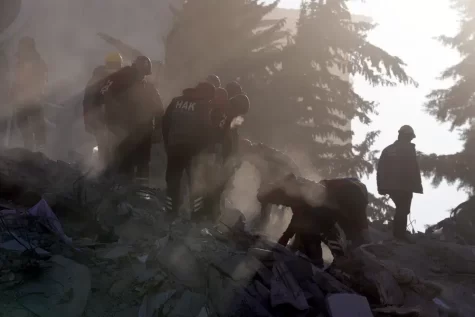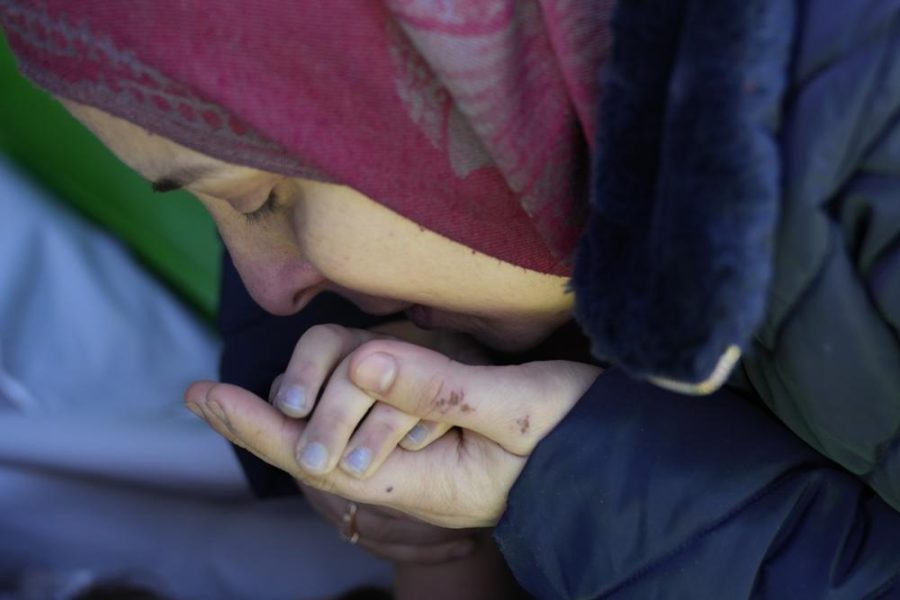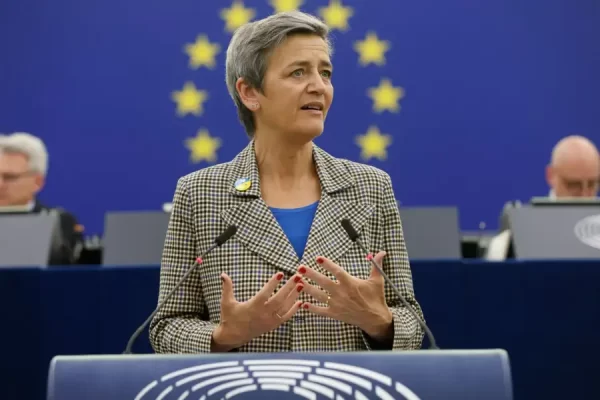Turkey-Syria earthquake death toll surpasses 36,000
Turkey and Syria have been exposed to a 7.8 magnitude earthquake, currently reaching a death toll of 36000.
More than 110,000 rescue personnel have now taken part in the efforts of clearing up the earthquake’s aftermath.
The earthquake struck Turkey and Syria on Feb. 6 and is likely to be known as one of the deadliest earthquakes in more than a decade. Due to cold temperatures, aftershocks, lack of infrastructure, limited aid, and the severity of the earthquake magnitude the death toll is likely to continue rising.
It is estimated that tens of thousands of people lost their homes. For example, former occupants of a collapsed building crowded around open fires in Antakya on Wednesday night into Thursday morning in an effort to remain warm. According to, AP News.
Since machinery is the only means to lift portions of heavy concrete, many people are still hidden beneath the debris of the neighboring buildings.
Serap Arslan, a victim of the earthquakes, talks about how many like her mother and brother remain under the rubble of buildings as machinery is imperative to delegate heavy concrete.
“We tried to clear it by our own means, but unfortunately we are very inadequately prepared for the job,” said Arlan.
Officials say that the window of opportunity for individuals buried beneath the debris or otherwise unable to access basic essentials was rapidly closing.
Steven Godby, a natural hazards expert at Nottingham Trent University in England, spoke on the survival ratio.
“The survival ratio on average within 24 hours is 74 percent, after 72 hours 22 percent and by the fifth day 6 percent,” said Godby.

President of Turkey, Recep Tayyip Erdogan, visited the region of Hatay on Wednesday. Residents there have criticized him and the government’s actions, objecting to rescuers’ slow arrival.
“Dishonorable people” were spreading “lies and slander,” said Erdogan to the response of critics.
Erdogan, currently facing concern around his May reelection, acknowledged problems with the emergency response, he explained that the effect of the winter weather and the earthquake’s destruction to the Hatay’s airport runways delayed response.
“It is not possible to be prepared for such a disaster,” Erdogan said. “We will not leave any of our citizens uncared for.”
Erdogan also claimed that the government would distribute ₺10,000 Turkish lira ($532) to affected families.
Aid attempts in Syria have been hindered by the ongoing conflict and segregation of the rebel-held border region, which is encircled by government forces backed by Russia. As a result of Western sanctions related to the conflict.
Obsidian Rannoush, a Syrian medical volunteer expresses his opinion on the lack of action by the international community toward his nation.
“I call on the international community, the Arab countries, and the United Nations (UN) to urgently help us. More than 60 hours after the quake took place, there are still hundreds trapped under the debris,” said Rannoush. “We cannot rescue them because of our meager resources. We need heavy machinery, humanitarian and medical aid,”
Given these conditions, hope and prayers go out to the families and victims of the Turkey-Syrian earthquake.
To support people impacted by the earthquake visit Global Giving to donate.






